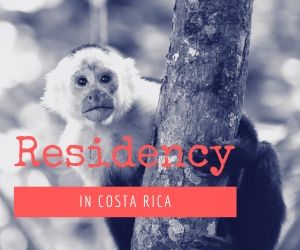D2864,
ACT no. 8101 of the RESPONSIBLE PATERNITY ACT was passed in CR in April, 2001. I believe there was also an addition in 2003.
Just do a search for "Responsible Paternity" and "Costa Rica"...you'll have enough to keep you busy for a while. It looks like I was wrong about the suspected father having to pay for the DNA test. Looks like the state covers that...or maybe it was changed in the 2003 revision...not sure.
I no longer live in CR and did my research 2 years ago. I believe a lot of the info was in Roger Petersen's book...The Legal Guide to Costa Rica.
http://www.costaricalaw.com/
http://www.costaricalaw.com/legalnet/codigocivil.htm
http://www.nyulawglobal.org/globalex/costa_rica.htm
Here are a couple of links.
http://www.plastic.com/article.html;sid ... 7/05265488
Naming Names In Costa Rica — Paternity Simplified
found on LA Times written by ms_sue_collins, edited by Humberto(Plastic)
"Since March 2001, all a mother has to do is name the father of her Ch*ld in a process that begins in the hospital after delivery. The man is then asked to submit to a DNA test, at no charge to him. If he declines, he is assumed to be the father and must pay Ch*ld support. This simplified approach to determining paternity is a dramatic departure from the country's former system, which was similar to those in the U.S. and most Western countries, requiring lengthy court hearings and significant legal fees."
"Opponents of the new law cite the high cost of lab tests, an estimated $700,000 out of the country's annual $2 billion budget and object that only women can force DNA tests.
Also, if a man denies paternity, he automatically gives up his rights, such as visitation but still must pay Ch*ld support., Proponents hail the new law as empowering women. Ibelis Velazco, a women's rights lawyer who is widely regarded as the mother of the new law, said the debate over it 'helped women realize their rights.' Significantly, Ch*ldren who have a father listed in the nation's registry automatically receive rights to inheritance, social security benefits, and Ch*ld support. Costa Rican officials also hope that the new law will make men more more responsible about birth control and perhaps persuade them to be better fathers. "
http://american-european.net/blogs/cost ... -positive/
Costa Rica’s Paternity law, passed in 2003, has resulted in an increase every year of DNA based paternity testing.
Edna Meléndez, head of the DNA lab, said that in 2005 there were 1.600 DNA tests and confirmed that 82 per cent were positive. This means that nearly 20% of the mothers did not know who the father was or lied to the Civil Registry about the identity of the father.
Under the law, the unwed mother declares at birth who the father of the Ch*ld is. In cases where the father may not recognize the Ch*ld as his, the civil registry will investigate. They notify the father who has 10 working days to accept or deny paternity. If he does not answer the registry will assume that he is the father and proceed with registering the birth of the Ch*ld. If the father reports to the registry that he is not the father, then the Registry will give an appoint to the father, mother and Ch*ld the DNA testing laboratory. If the named father does not appear at the appointment, then the Registry will again assume paternity.
The same paternity law increased the father’s responsibilities for
Ch*ld support and the ability of the public institutions to enforce support. Every year the total of DNA tests has risen, according to officials due to more awareness of the law.









